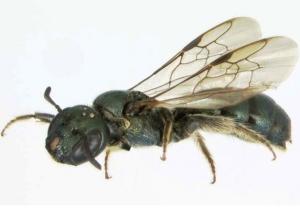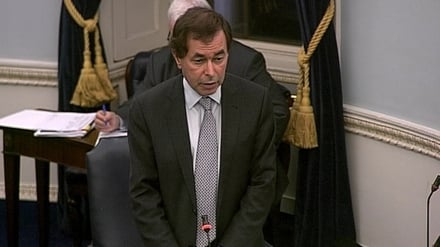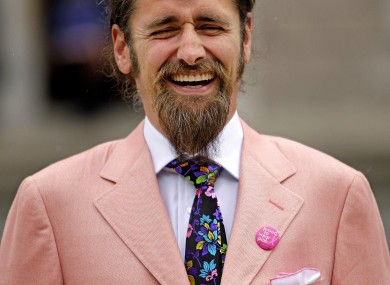Concern debated in the Dáil over Gardaí removal of Roma children
FIANNA FÁIL ASKS IF SAME ‘EXTREME ACTIONS’ WOULD BE ALLOWED IF THE CHILDREN WERE IRISH NATIONALS
Tánaiste Eamon Gilmore: gardaí and the HSE should provide the first reports about the circumstances of the removal of the two children.
Mr Gilmore said they would then await the Ombudsman’s report on the issue. “There may well be issues to be addressed at that stage. But let’s in the first instance hear what the facts of what happened here, get the basic questions answered.”
answered.”
 answered.”
answered.”
He was responding to Sinn Féin deputy leader Mary Lou McDonald, who said it was not appropriate for the gardaí to investigate the gardaí and for the HSE to investigate the HSE. Such an approach would “not build public confidence”, she said.
“Why not just give this investigative process in the first instance to Ombudsman Emily Logan and have her independent office, charged with the rights and welfare of children and bring this inquiry from start to finish?” she asked.
to finish?” she asked.
 to finish?” she asked.
to finish?” she asked.
“We need to reflect on what’s important here. What’s important first of all is the safety of children.”
Mr Gilmore insisted every child should be treated equally and the safety and welfare of children should be at the heart of the entire children protection system . That had to be operated in a way that was accountable.
The Tánaiste said they needed first of all to find out the facts, because there were many people who felt there were very basic questions to be asked. “What was the information had that led the gardaí to go to the house in the first place?” he asked. “What happened in the house? How was the decision made? What was the risk, the danger? Who made the decision?”
He said he would not rush to conclusions until Ms Logan’s report is published. ill be”.
Earlier, Fianna Fáil spokesman on children Robert Troy said the reports of how and why the Garda removed two children from their homes were very disturbing. “Would these extreme actions be acceptable if the families involved were Irish nationals?” he asked.
Robert Troy said the reports of how and why the Garda removed two children from their homes were very disturbing. “Would these extreme actions be acceptable if the families involved were Irish nationals?” he asked.
 Robert Troy said the reports of how and why the Garda removed two children from their homes were very disturbing. “Would these extreme actions be acceptable if the families involved were Irish nationals?” he asked.
Robert Troy said the reports of how and why the Garda removed two children from their homes were very disturbing. “Would these extreme actions be acceptable if the families involved were Irish nationals?” he asked.
Welcoming the children’s return to their families, he said: “We must acknowledge the extreme distress the families went through over the last few days.”
The Fianna Fáil spokesman asked: “Why were the other children left with the families and why could one of the parents not have stayed with the child while their DNA was tested?”
Mr Troy said that while gardaí acted in good faith,following the press coverage of a child in Greece, there was obviously an increased number of reports to gardaí focused on Roma families.
faith,following the press coverage of a child in Greece, there was obviously an increased number of reports to gardaí focused on Roma families.
 faith,following the press coverage of a child in Greece, there was obviously an increased number of reports to gardaí focused on Roma families.
faith,following the press coverage of a child in Greece, there was obviously an increased number of reports to gardaí focused on Roma families.
Mr Gilmore acknowledged the removal of the two children was disturbing and asked if there were other ways of dealing with the issue, short of removing the children from the family setting .
Independent TD Stephen Donnelly said he applauded the Tánaiste’s “passion” for equality and for non-discrimination.
“It’s obviously very real. However, it is a bit hard to take when tomorrow you’re going to vote through a piece of legislation (Social Welfare Bill) that discriminates on no other ground, other than age.”
Welfare Bill) that discriminates on no other ground, other than age.”
 Welfare Bill) that discriminates on no other ground, other than age.”
Welfare Bill) that discriminates on no other ground, other than age.”Portuguese police reopen an inquiry into the Madeleine McCann case


PORTUGUESE POLICE HAVE REOPENED THEIR INQUIRY INTO THE DISAPPEARANCE OF BRITISH GIRL MADELEINE MCCANN, THE PUBLIC PROSECUTOR’S OFFICE HAS SAID.
Madeleine, from Leicestershire, was three when she disappeared from Praia da Luz in the Algarve in May 2007.
Portugal’s attorney general said “new elements of evidence” justified the “continuation of the investigation”, which was shelved by police in 2008.
Madeleine’s parents said they hoped for “the answers we so desperately need”.
we so desperately need”.
 we so desperately need”.
we so desperately need”.
Scotland Yard began a review of the case in May 2011 – codenamed Operation Grange – and opened a formal investigation in July this year.
Portuguese police said a review team had been working since March 2011 to look back through information from the original investigation – and thisprocess had uncovered potential new lines of inquiry.
had uncovered potential new lines of inquiry.
 had uncovered potential new lines of inquiry.
had uncovered potential new lines of inquiry.‘BEST OPPORTUNITY’
WE HOPE THAT THIS WILL FINALLY LEAD TO HER BEING FOUND AND TO THE DISCOVERY OF WHOEVER IS RESPONSIBLE FOR THIS CRIME”
The decision comes after Scotland Yard said at a briefing earlier this year that the Portuguese inquiry would not be re-opened until judges there were convinced there were solid grounds to do so.
Assistant Commissioner Mark Rowley and Det Ch Insp Andy Redwood met senior Portuguese police in Lisbon last Thursday for a briefing on the new lines of enquiry, which are “separate” to those being followed by the Met.
Madeleine’s parents, Kate and Gerry McCann, were also briefed on the case during the meeting .
.
 .
.
They said they were “very pleased” the Portuguese inquiry, which will run alongside the Met operation, was being reopened.
“We hope that this will finally lead to her being found and to the discovery of whoever is responsible for this crime,” they said.
Theresa May: “I hope it will enable a resolution to this terrible thing that happened to the McCann family”
“We once again urge any member of the public who may have information relating to Madeleine’s abduction to contact the police in Portugal or the UK.”
relating to Madeleine’s abduction to contact the police in Portugal or the UK.”
 relating to Madeleine’s abduction to contact the police in Portugal or the UK.”
relating to Madeleine’s abduction to contact the police in Portugal or the UK.”
Mr Rowley, assistant commissioner for specialist crime and operations, said the meeting was “very positive” and both forces had a “shared determination” to solve the case.
“I believe that we have the best opportunity yet to finally understand what happened to Madeleine,” he said.
UK Home Secretary Theresa May welcomed the development, saying: “I hope what we are going to see is a resolution of this case for the sake of Maddie’s parents and family.”
Madeleine went missing from her family’s holiday apartment on 3 May 2007, as her parents dined with friends at a nearby tapas bar.
The three-year-old and her brother and sister were left in the apartment at 20:30, with their father checking on them at 21:05.
Mrs McCann raised the alarm at 22:00 when she realised Madeleine was gone.
Since then there has been much speculation about what happened to the youngster.
In July, the Met said new evidence had come to light, and last week an appeal launched on BBC Crimewatch prompted 2,400 responses.
Met detectives released two e-fits of a man seen carrying a child in Praia da Luz at 22:00 on the night Madeleine went missing and it was revealed that they now suspected Madeleine could have been taken later than previously thought – just before her mother returned to the apartment to check on her.
THE MET ARE OFFERING A £20,000 REWARD FOR INFORMATION.
They say their inquiries have led to the “accepted version of events” surrounding Madeleine’s disappearance being significantly changed.
Det Chief Insp Andy Redwood said further appeals on similar programmes in the Netherlands and Germany had led to hundreds of calls.
The next stage of the appeal will be in Ireland later this month.
stage of the appeal will be in Ireland later this month.
 stage of the appeal will be in Ireland later this month.
stage of the appeal will be in Ireland later this month.
On Wednesday, Met Police Commissioner Sir Bernard Hogan-Howe defended the way Portuguese police had handled the initial investigation into Madeleine’s disappearance.
“I’m sure for them that must have been a challenge. Anybody can go back after two, three, five, six years and say ‘why didn’t you do that’? That’s easy in hindsight,” he said.
Ireland now ready for cannabis to be made legal
Proposed Bill from Luke ‘Ming’ Flanagan (above pic) would allow restricted home cultivation and personal possession
Independent TD Luke Ming Flanagan at a press conference in Buswells Hotel, Molesworth Street, Dublin , where he claimed decriminalising cannabis could save Ireland hundreds of million euro
, where he claimed decriminalising cannabis could save Ireland hundreds of million euro
 , where he claimed decriminalising cannabis could save Ireland hundreds of million euro
, where he claimed decriminalising cannabis could save Ireland hundreds of million euro
“Ireland is ready for the legalisation of cannabis,” according to Roscommon TD Luke Ming Flanagan, who today published his Cannabis Regulation Bill 2013.
is ready for the legalisation of cannabis,” according to Roscommon TD Luke Ming Flanagan, who today published his Cannabis Regulation Bill 2013.
 is ready for the legalisation of cannabis,” according to Roscommon TD Luke Ming Flanagan, who today published his Cannabis Regulation Bill 2013.
is ready for the legalisation of cannabis,” according to Roscommon TD Luke Ming Flanagan, who today published his Cannabis Regulation Bill 2013.
Mr Flanagan estimated that the legalisation of cannabis could generate up to €300 million through tax revenues and the freeing up of resources. However, he stressed this was an estimate and it was not possible to know for sure what savings might be made.
and the freeing up of resources. However, he stressed this was an estimate and it was not possible to know for sure what savings might be made.
 and the freeing up of resources. However, he stressed this was an estimate and it was not possible to know for sure what savings might be made.
and the freeing up of resources. However, he stressed this was an estimate and it was not possible to know for sure what savings might be made.
“If cannabis is legalised, we can make a shopping list out of the amount of money which legalising cannabis will save this country,” said the TD.
These savings could, he said, lead to the reversal of the recent Budget cuts including cuts to the bereavement grant, cuts to young people’s social welfare payments and the abolition of the telephone allowance .
.
 .
.
The Bill, which is due to be debated in the Dáil on November 5th and 6th, would, if passed:
- regulate cannabis for recreational and medical use
- allow for home cultivation up to a maximum of six cannabis plant
for home cultivation up to a maximum of six cannabis plant
 for home cultivation up to a maximum of six cannabis plant
for home cultivation up to a maximum of six cannabis plant
- allow for the personal possession of up to one ounce of cannabis
- allow for the setting up of “Cannabis Social Clubs” which would allow up to 50 club members to cultivate up to 300 plants for not-for-profit use
- set up a “cannabis regulation authority” to regulate the cultivation, sale , labelling, advertising and marketing of cannabis
, labelling, advertising and marketing of cannabis
 , labelling, advertising and marketing of cannabis
, labelling, advertising and marketing of cannabis
- see tax revenue from cannabis fund drug addiction services, medical research and juvenile education courses on drugs.
- include a requirement that the Minister for Justice and Minister for Agriculture to examine the feasibility of the safe regulation and controlled use of cannabis.
“This Bill will protect our youth from unscrupulous dealers; it will make it, in my opinion, more difficult for them to get it; and in the same way as if a minor uses alcohol, a minor who uses cannabis will also face similar sanctions such as having to go into treatment,” Mr Flanagan said.
Mr Flanagan also announced the setting up of a new group, Normal Ireland, which aims to “proactively educate the Irish public as to the social, economic and health benefits of legalising cannabis” and to lobby for a change to the law.
the setting up of a new group, Normal Ireland, which aims to “proactively educate the Irish public as to the social, economic and health benefits of legalising cannabis” and to lobby for a change to the law.
 the setting up of a new group, Normal Ireland, which aims to “proactively educate the Irish public as to the social, economic and health benefits of legalising cannabis” and to lobby for a change to the law.
the setting up of a new group, Normal Ireland, which aims to “proactively educate the Irish public as to the social, economic and health benefits of legalising cannabis” and to lobby for a change to the law.
The board of the new groups includes Stuart Clark, assistant editor of HotPress; Dr Garrett McGovern, a GP specialising in alcohol and substance abuse and Dr Cathal ÓSúiliobháin, a GP working with addiction.
with addiction.
 with addiction.
with addiction.ESB/Troika plans to sell off Irish power stations
THE ESB is to sell two peat-burning power stations in the midlands under government plans to raise €400m by selling power generation assets.
West Offaly Power in Shannonbridge, Co Offaly and Lough Ree Power in Lanesborough, Co Longford, are expected to be sold by the middle ofnext year.
The ESB said it would be proposing to prospective buyers that the plants would continue to be operated along with the existing 82 staff, thereby ensuring jobs were protected.
The sale is part of a wider disposal of state assets ordered by the troika.
is part of a wider disposal of state assets ordered by the troika.
 is part of a wider disposal of state assets ordered by the troika.
is part of a wider disposal of state assets ordered by the troika.
Fianna Fail expressed concern at the sale, claiming the Government had reneged on its commitment that “no ESB power generating facility on this island would be sold”.
Environment spokesman Barry Cowen said: “As recently as May of this year, the Minister for Public Expenditure Brendan Howlin told the Dail that, ‘with regard to the ESB, there will be no sale of any power-generating capacity in the Republic or the island of Ireland’. What has happened to that commitment?
“These plants were built in 2005 and 2006 and it was envisaged they would have a lifespan of at least 25 years. We need to ensure that they are not being sold off now for a quick fix at the expense of the staff and the country’s longer term interests.”
In a statement, the ESB said: “West Offaly Power and Lough Ree Power have and will continue to play a major role in the electricity industry.”
to play a major role in the electricity industry.”
 to play a major role in the electricity industry.”
to play a major role in the electricity industry.”How the Irish government plans to tackle alcohol abuse
A strict advertising code and product labels with health warnings form part of a range of measures to tackle alcohol abuse.
Alex White, a Minister of State at the Department of Health, announced today the Cabinet has approved an “extensive package of measures to deal with alcohol misuse”.
today the Cabinet has approved an “extensive package of measures to deal with alcohol misuse”.
 today the Cabinet has approved an “extensive package of measures to deal with alcohol misuse”.
today the Cabinet has approved an “extensive package of measures to deal with alcohol misuse”.
The series of initiatives — which include a minimum pricing regime per gram of alcohol — is to be incorporated in a Public Health (Alcohol) Bill.
regime per gram of alcohol — is to be incorporated in a Public Health (Alcohol) Bill.
 regime per gram of alcohol — is to be incorporated in a Public Health (Alcohol) Bill.
regime per gram of alcohol — is to be incorporated in a Public Health (Alcohol) Bill.
Mr White said the legislation targets high-strength alcohol being sold cheaply.
He claimed the average price of a pint or short in the pub will not be affected.
of a pint or short in the pub will not be affected.
 of a pint or short in the pub will not be affected.
of a pint or short in the pub will not be affected.
“Almost all drinks in pubs are already above any likely minimum price,” he said.
above any likely minimum price,” he said.
 above any likely minimum price,” he said.
above any likely minimum price,” he said.
When the legislation is passed, the regulations will limit drink ads on television and radio from 2016 to evening hours and, in cinemas, to films classified as over 18s.
In addition, outdoor advertising of alcohol will be restricted by a statutory code from 2018.
Print media ads will also be subjected to a statutory code, while limits are to be set on how alcohol is portrayed, with a particular emphasis on monitoring sexual content.
The minimum pricing measures will target high-strength products that are being sold cheaply in off-licences.
Environmental Health Officers are to be given increased enforcement powers relating to underage drinking.
But the Cabinet has shied away from imposing a ban on drinks companies sponsoring major sporting events.
It comes following strong representations from bodies like the IRFU which argued such a prohibition could hit rugby competitions like the Heineken Cup.
In a statement, the Government said it recognises the public health concerns associated with alcohol sponsorship of sport and also the potential impact of any regulatory measures on funding for sports organisations.
It has decided that the existing voluntary code that governs sports sponsorship will be placed on a statutory footing.
Minister White said: “This is a landmark day. It is the first time alcohol misuse has been addressed as a public health issue.
“The Government has recognised the severe consequences of the misuse of alcohol – including deaths, injuries and social and financial problems - and has determined to take action to address
problems - and has determined to take action to address this problem.
this problem.
 problems - and has determined to take action to address
problems - and has determined to take action to address this problem.
this problem.
“The package of measures to be implemented is the result of intensive discussions across Government departments, and will include provision for minimum unit pricing for alcohol products and the regulation of advertising and marketing of alcohol.”
and the regulation of advertising and marketing of alcohol.”
 and the regulation of advertising and marketing of alcohol.”
and the regulation of advertising and marketing of alcohol.”
Health Minister, Dr James Reilly, said: “Alcohol misuse in Ireland is a serious problem with two thousand of our hospital beds occupied each night by people with alcohol related illness or injury.
“This impacts on families and individuals at every level of society. It’s deeply worrying too that young people are starting to drink earlier and to drink more. The average Irish person over the age of 15 is consuming the equivalent of a bottle of vodka a week.
“The Government is committed to tackling these problems and this week’s decision marks a significant further step in that direction to create an environment where responsible consumption of alcohol is the norm.”
Ancient Bees may have been wiped out 65 million years ago with the Dinosaurs


The ancestors of modern carpenter bees (above left pic) may have vanished from Earth roughly 65 million years ago, around the same time the dinosaurs were wiped out, a new study find
Researchers examined the DNA of four types of carpenter bees — belonging to the group Xylocopinae — from every continent, except Antarctica, to search for clues about their evolutionary relationships. Peering back into the lineages of the bees, the scientists noticed something unusual with all four groups, beginning roughly 65 million years ago, at the boundary between the Cretaceous and Paleogene periods.
for clues about their evolutionary relationships. Peering back into the lineages of the bees, the scientists noticed something unusual with all four groups, beginning roughly 65 million years ago, at the boundary between the Cretaceous and Paleogene periods.
 for clues about their evolutionary relationships. Peering back into the lineages of the bees, the scientists noticed something unusual with all four groups, beginning roughly 65 million years ago, at the boundary between the Cretaceous and Paleogene periods.
for clues about their evolutionary relationships. Peering back into the lineages of the bees, the scientists noticed something unusual with all four groups, beginning roughly 65 million years ago, at the boundary between the Cretaceous and Paleogene periods.
“We can track periods of diversification and stasis,” lead study author Sandra Rehan, an assistant professor of biological sciences at the University of New Hampshire,told LiveScience. “There was a period where there was no genetic diversification happening for millions of years — a real dearth of speciation. This is an indication of a mass extinction event.” [The 10 Weirdest Animal Discoveries]
author Sandra Rehan, an assistant professor of biological sciences at the University of New Hampshire,told LiveScience. “There was a period where there was no genetic diversification happening for millions of years — a real dearth of speciation. This is an indication of a mass extinction event.” [The 10 Weirdest Animal Discoveries]
 author Sandra Rehan, an assistant professor of biological sciences at the University of New Hampshire,told LiveScience. “There was a period where there was no genetic diversification happening for millions of years — a real dearth of speciation. This is an indication of a mass extinction event.” [The 10 Weirdest Animal Discoveries]
author Sandra Rehan, an assistant professor of biological sciences at the University of New Hampshire,told LiveScience. “There was a period where there was no genetic diversification happening for millions of years — a real dearth of speciation. This is an indication of a mass extinction event.” [The 10 Weirdest Animal Discoveries]
The end of the Cretaceous Period, corresponding to the beginning of the Paleogene Period, was already known to be a dynamic time in history. It is commonly thought that a massive asteroid or comet slammed into Earth 65 million years ago, wiping out the dinosaurs and killing up to 80 percent of all species.
“We found this mass extinction event signature in the DNA that just happened to correspond to the extinction of dinosaurs, which was a major change in the global diversity at the time,” Rehan said.
in the global diversity at the time,” Rehan said.
 in the global diversity at the time,” Rehan said.
in the global diversity at the time,” Rehan said.
Rehan and her colleagues did not study possible relationships between the bee and dinosaur extinctions, but said the similar timings act as secondary support for both theories.
possible relationships between the bee and dinosaur extinctions, but said the similar timings act as secondary support for both theories.
 possible relationships between the bee and dinosaur extinctions, but said the similar timings act as secondary support for both theories.
possible relationships between the bee and dinosaur extinctions, but said the similar timings act as secondary support for both theories.
Since there are no reliable fossil records for carpenter bees, the researchers used a technique called molecular phylogenetics. This involves analyzing DNA sequences and searching through the data for evolutionary insights. To understand where in time evolutionary changes were happening, the researchers used fossils of other types of bees as reference points.
for evolutionary insights. To understand where in time evolutionary changes were happening, the researchers used fossils of other types of bees as reference points.
 for evolutionary insights. To understand where in time evolutionary changes were happening, the researchers used fossils of other types of bees as reference points.
for evolutionary insights. To understand where in time evolutionary changes were happening, the researchers used fossils of other types of bees as reference points.
“We used fossils of other lineages of bees to make inferences and calibrate time,” Rehan explained. “Then, we backtracked over time.”
The new research suggests the bee extinction lasted about 10 million years, she added.
The findings should generate great interest in the field , said John Ascher, assistant professor in the department of biological sciences at the National University of Singapore and a research associate in the division of invertebrate zoology at the American Museum of Natural History in New York City. But Ascher, who wasn’t involved in the current research, said studies that use molecular phylogenetics tend to be “speculative in their reliance on unrealistic and insufficiently justified evolutionary models.”
“I would be much more enthusiastic about the discovery of a reliable fossil within any of the extant Xylocopinae tribes (the authors note that there are none),” Ascher told LiveScience in an email .
.
 .
.
Still, the findings could shed some light on the declines that are being observed in current bee populations, Rehan said.
“Bees have gone through hard times, and negative effects have occurred,” Rehan said. “We can maybe learn from the past, and learn how pollinators and plants respond to natural disturbances. If we can understand what happened in the past, it can help us understand the current perturbations and loss of diversification.”







No comments:
Post a Comment